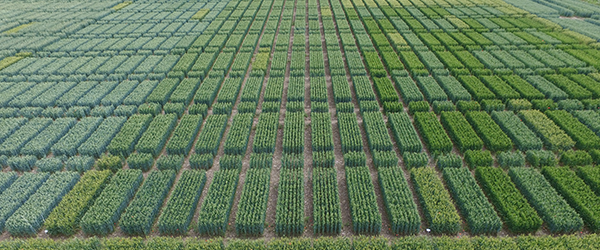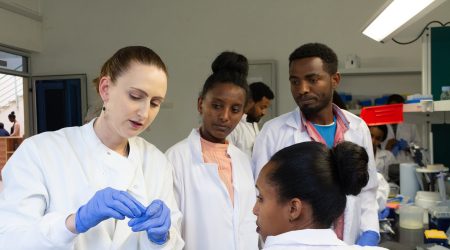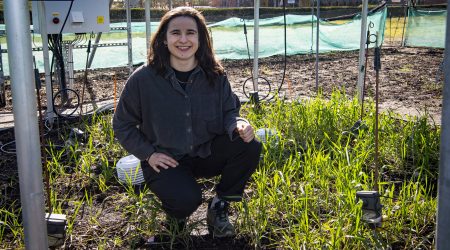Scientists uncover hidden wheat treasures

A team of scientists in the UK and USA have generated a new ground-breaking resource of ten million mutations in bread and pasta wheat varieties.
Researchers and breeders can search the public wheat database online to identify changes in their genes of interest and request seeds to improve the nutrition and production of wheat worldwide. They anticipate this will speed up the development of the wheat crop with highly sought-after traits, including disease resistance and increased yield.
Since the dawn of agriculture, wheat has been a major dietary source of calories and protein for humans. Breeding of better bread and pasta wheat varieties is key for sustaining global food security. The modern-day cultivated wheat species harbour polyploid genomes, meaning that each plant has multiple functional copies of each gene. Therefore, genetic variation (such as mutations) in one gene copy are frequently masked, or hidden, by functional copies within the other genomes.
Scientists from the Earlham Institute (EI, UK), the John Innes Centre (JIC, UK), Rothamsted Research (RRes, UK) and the University of California, Davis (UC Davis, USA), funded by BBSRC, USDA and HHMI, have catalogued ten million mutations by sequencing 400 billion bases of DNA from 2735 mutant wheat lines. These hidden mutations are likely to disrupt more than 90% of the pasta and bread wheat genes.
Wheat researchers from all over the world are using this publicly available collection of mutants with close to 3,000 individual seed stocks already distributed. The first results are starting to surface. Using these mutations, improved nutritional wheat varieties with larger grains and more dietary value have been developed. Scientists are also utilising this collection to characterise gene functions that control wheat flowering and adaptation to new and changing environments.
First author Dr Ksenia Krasileva, Group Leader at EI and The Sainsbury Laboratory, said: “Breeding better wheat is an ongoing major challenge that we need to meet to keep agriculture sustainable and produce varieties that are well adapted to changes in global climate. Within the polyploid wheat genomes, there is a highly-significant amount of genetic variation that researchers can unearth that is commonly hidden – masked by multiple copies of each gene in the different wheat genomes. We need to identify and combine variation from different wheat genes in order to reveal the crop’s most beneficial changes.
“Our study produced a well-catalogued collection of over 10 million changes in wheat genes that breeders and researchers can use today to improve wheat. Essentially, this work will help us to better understand the functions of wheat mutations that have taken place in our wheat varieties, which should hopefully aid worldwide production of wheat.”
Dr Cristobal Uauy, Crop Genetics Project Leader at JIC, added: “This study provides immediate access to a treasure trove of genetic variation to breeders and researchers. Critically, this variation and the novel combinations that will be generated have not previously been utilised in traditional wheat breeding programmes. This represents an unprecedented opportunity to make significant progress in wheat improvement to address a series of challenges facing sustainable crop production.”
Dr Andy Phillips, Principal Investigator in the Dept. of Plant Biology and Crop Science at Rothamsted Research, said: “Since before the Green Revolution, mutation breeding has been very valuable in less complex crops such as rice, which as a diploid does not have additional copies of most genes. Our work provides a valuable non-GM resource that will allow scientists and breeders to identify and combine mutations in the multiple copies of wheat target genes, allowing the effects on the plant to be observed and exploited to accelerate crop improvement.”
The scientific paper “Uncovering hidden variation in polyploid wheat” will be published in PNAS.



